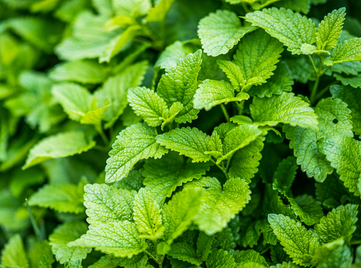How does alcohol affect your brain function?
Your brain relies on a delicate balance of chemicals to function well and remain healthy. Alcohol is a depressant which means it can disrupt that balance - affecting your thoughts, feelings, and even actions. This can also affect your long-term mental health. This is because of neurotransmitters, chemicals that help to transmit signals from one nerve (or neuron) to another.
While drinking, you may experience feelings of inhibition and relaxation from even the first sip of your drink. However, as we drink more, the impact on our brain function increases.
Regardless of the mood you’re in when you start, with increasing alcohol consumption, it’s possible that negative emotions will take over, leading to a negative impact on mental health. Alcohol can be linked to aggression and some people report becoming angry, aggressive, anxious or depressed when they drink.
Why alcohol is bad for mental health
The relaxed feeling we can experience if we have a drink is due to the chemical changes alcohol causes in the brain. A drink can make some people feel more confident and less anxious, as the alcohol begins to suppress the part of the brain associated with inhibition. But while you might feel relaxed after having a drink, in the long run, alcohol can have a severe impact on mental health and can even contribute to feelings of depression or anxiety, and make stress harder to deal with.
Here are some of the most common side effects of excessive drinking
1. Overconfidence
From dancing wildly to doing things you usually wouldn’t such as accepting dangerous dares - alcohol lowers our inhibitions. This can make us feel over-confident in our skills when in reality, our reflexes and judgement are severely impaired.
Overconfidence can get you into some tricky situations or accepting offers that may not be safe or wise.
2. Impulsiveness
Drinking alcohol can lower inhibition and make us act on things we may not usually do. This can range from harmless things, such as online shopping, kissing a stranger, or drunk dialling an ex, but can expand to more severe actions such as self-harm or committing suicide.
According to studies, there is a strong link between alcohol abuse and an increase in self-harm and suicidal thoughts. If you’re experiencing any of these, it’s important to speak to someone about how you’re feeling such as a doctor, trusted friend or family member, or a suicide helpline.
3. Change in sleep patterns
According to Drink Aware, regular drinking can impact your sleep patterns. A good sleep schedule, as well as the right type of sleep, is essential for maintaining good mental health.
A heavy drinking session of more than six units in an evening can make us spend more time in the ‘deep sleep’ stage and less time in the important Rapid Eye Movement (REM) stage of sleep. The REM stage is an important restorative phase of sleep that our bodies and minds need to rest and feel restored.
Beyond just the type of sleep you are able to get, alcohol can also cause disruptions in your sleep pattern such as needing to go to the toilet more and snoring more. The right amount of good quality sleep is essential for helping us to regulate our mood, maintain concentration, and make good decisions.
4. Anxiety
Have you ever woken up the day after a night of heavy drinking with a feeling of dread or anxiety about the night before? Turns out it’s not just because you may have sent that message or danced a little too vigorously, it’s a matter of chemical imbalance.
Because alcohol changes the delicate balance between hormones that make us feel relaxed and those that make us feel alert, our bodies go into overdrive to rebalance them. Once the alcohol has worked its way out of our system, we are left with an overabundance of the “fight or flight” hormone, making us feel anxious and restless. This is known as “hangxiety” and we have a blog all about What is Hangxiety? that you can check out to learn more.
5. Depression
Alongside increased levels of anxiety and impulsiveness, alcohol can be linked to feeling depression. Alcohol itself is a depressant - slowing down bodily functions and easing feelings of anxiousness and helping to ease feelings of worry, stress, and low mood which can make it more appealing to those suffering from depressive disorders.
However, it can also lead to even lower moods and can exacerbate depressed emotions, especially with long-term misuse. If you’re prone to depression - it’s best to avoid drinking in excess and especially if you take medication for it as the two don’t mix well.
6. Memory loss
It’s been studied that heavy alcohol use can lead to lapses in memory. This can include difficulty recalling recent events or even an entire night as well as having the potential to cause permanent memory loss.
Some of alcohol’s effects on memory are obvious such as waking up after a night of drinking with a bruise you don’t remember getting, or not recalling any of the night’s previous events. But some effects are more subtle.
Some symptoms of memory loss due to heavy drinks can include:
- Being told that you spoke to someone recently but you don’t remember having the conversation.
- Frequently feeling confused or disoriented.
- Experiencing problems paying attention.
- Not being able to recall things you said or did while drinking.
- Being unable to fully remember any reasons why you may be in trouble with a loved one of the police when drinking.
Banishing the Booze
From wanting to save money to improving your health, there are many reasons why you may want to give up drinking. Check out our blog Health Hacks You Need To Know In 2024 learn more and form better habits.
Although the effects that alcohol can have on your mental health can be scary, there are ways to avoid having these issues down the line. Most importantly, try to drink less or no alcohol. Avoid big bingeing sessions with excessive alcohol but if you can’t, try making sure you drink a glass of water between each alcoholic beverage to help negate the effects of the booze.
A great way to lessen the amount of alcohol you’re drinking is to opt for an alcohol-free cocktail. Three Spirit specialise in making delicious and alcohol-free drinks that can be turned into tasty non-alcoholic cocktails in no time - the perfect alternative to a boozy evening. Browse our shop to have a taste of how good alcohol-free drinks can be!






